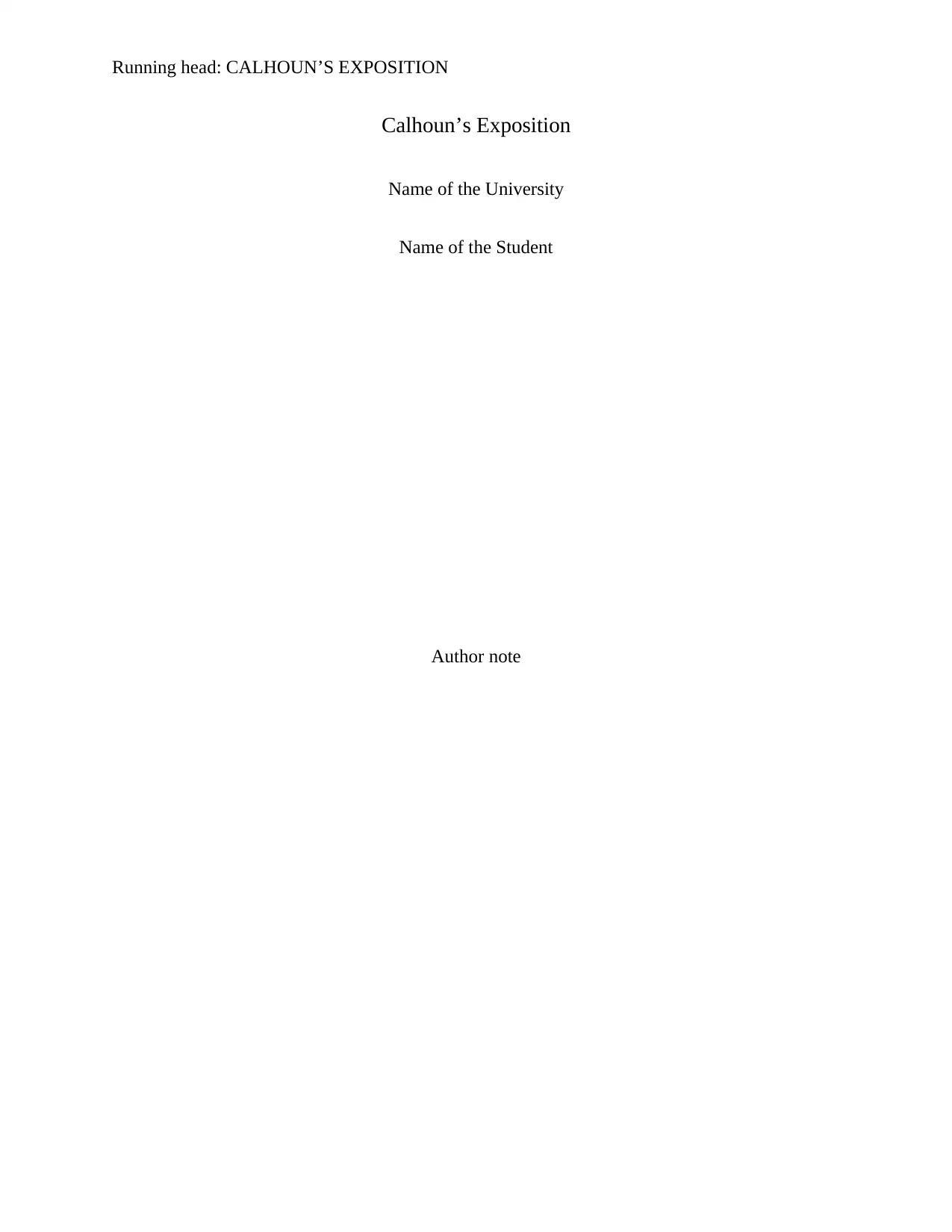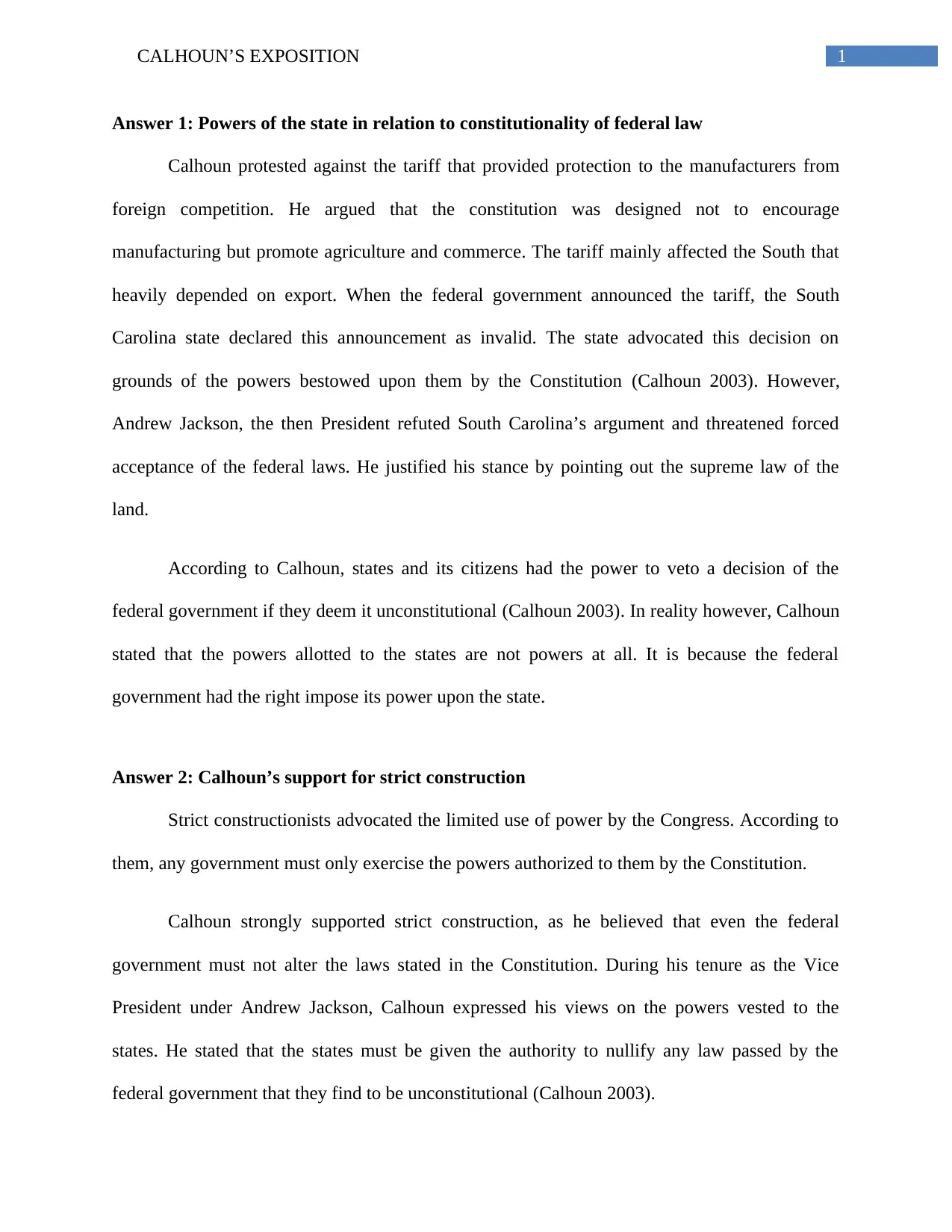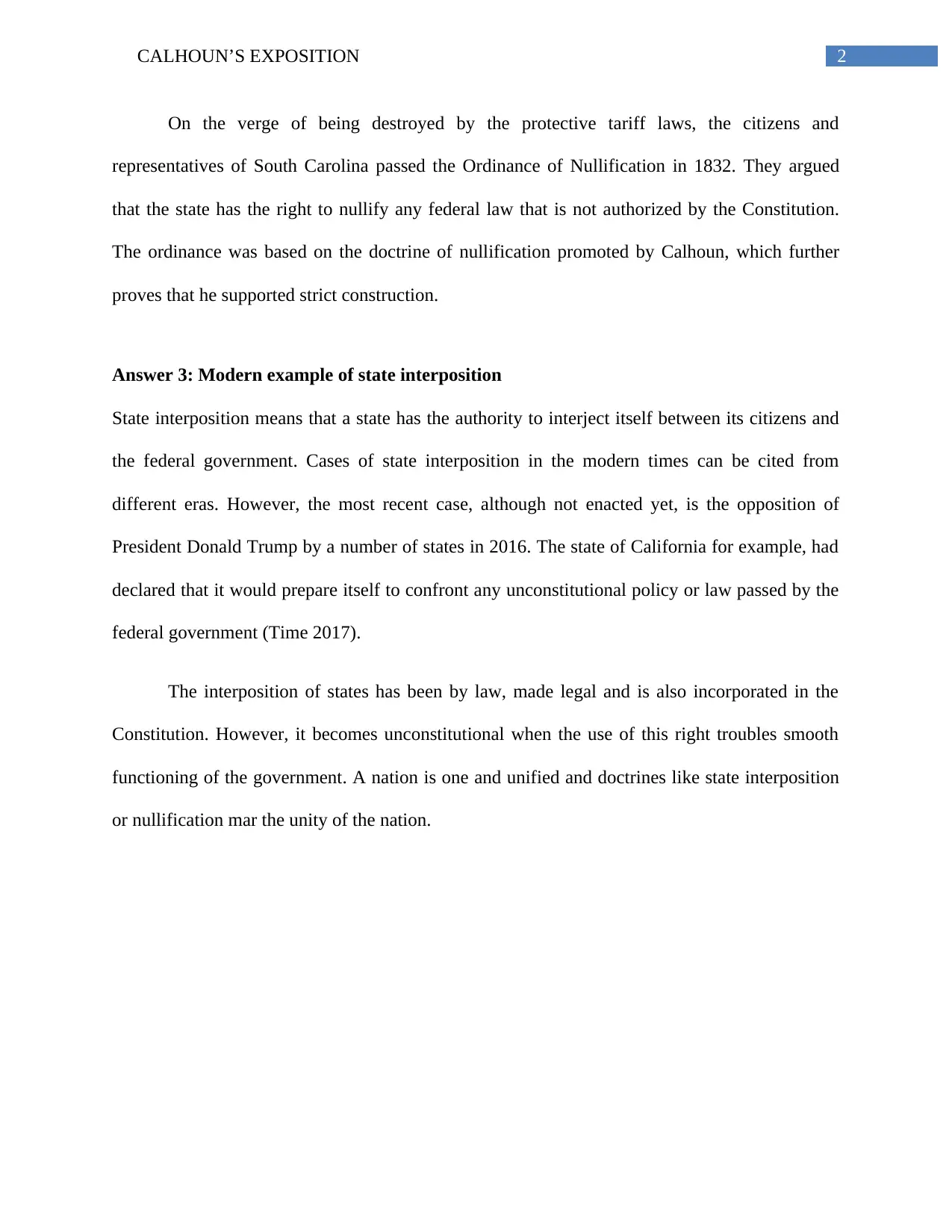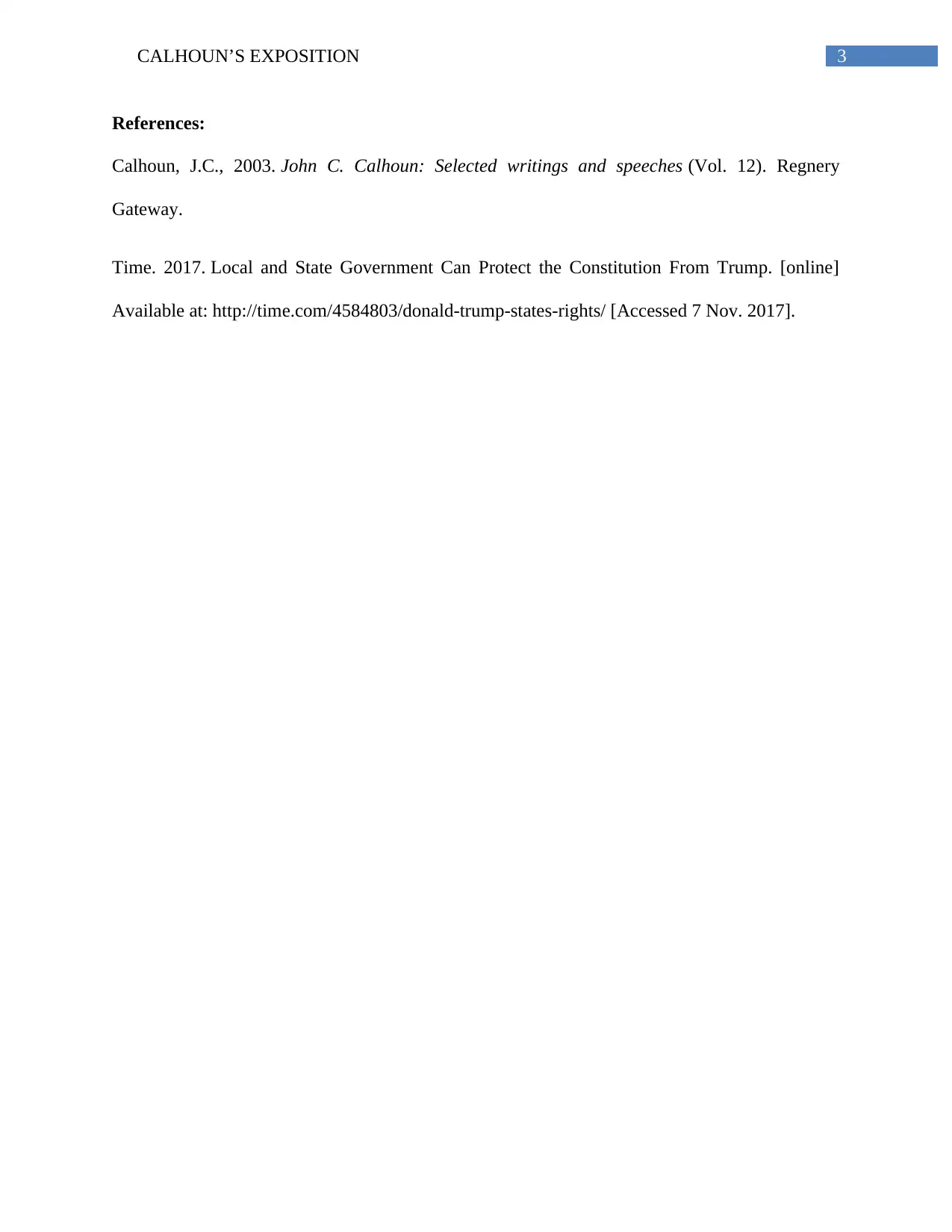A Report on Calhoun's Exposition: State's Rights and Nullification
VerifiedAdded on 2020/04/21
|4
|625
|79
Report
AI Summary
This report provides an analysis of John C. Calhoun's Exposition, examining his arguments on state powers in relation to the federal government and the constitutionality of federal laws. The report explores Calhoun's stance on strict construction, his advocacy for state's rights, and his doctrine of nullification. It delves into the historical context of the tariff debates and the South Carolina's response, highlighting Calhoun's belief in the states' ability to veto federal laws deemed unconstitutional. The report also discusses modern examples of state interposition, such as the opposition to certain federal policies by states like California. The analysis emphasizes the tension between state sovereignty and national unity, considering the implications of state interposition and nullification on the functioning of the federal government.
1 out of 4











![[object Object]](/_next/static/media/star-bottom.7253800d.svg)